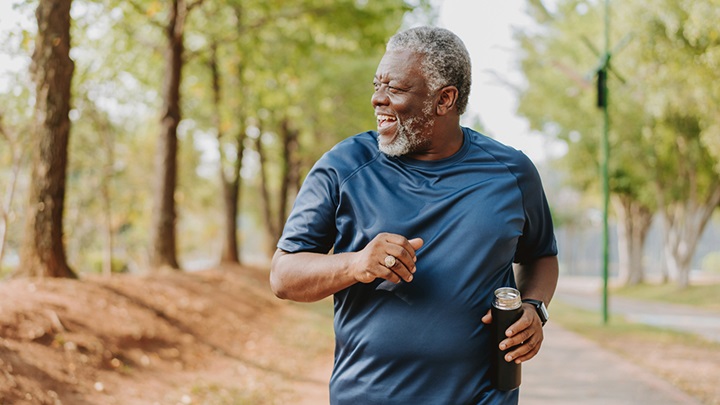Building Confidence Through Everyday Actions
Confidence is not something you’re born with—it’s something you build, little by little, through the choices you make each day. While grand achievements can certainly boost self-esteem, it’s the small, everyday actions that create lasting self-assurance. By taking intentional steps to strengthen your mindset, appearance, and interactions, you can cultivate a deeper sense of confidence that impacts every aspect of your life.
The Power Of Presentation
How you present yourself plays a significant role in how confident you feel. Confidence doesn’t always come from external validation, but dressing well, grooming carefully, and carrying yourself with pride can improve your mindset. Even subtle forms of self-expression, such as choosing a girls dp Instagram hidden face profile picture, show how people project their identity. This small action reflects individuality and control, qualities that contribute to personal confidence in the digital and physical world alike.
Setting And Achieving Small Goals
Confidence grows when you consistently set goals and achieve them. These don’t have to be huge milestones; even small wins, like finishing a book, cooking a new recipe, or sticking to a workout routine, create momentum. Each completed task strengthens your belief in your ability to succeed, which builds confidence for larger challenges.
In a way, it’s similar to how users navigate classified ads websites Australia. Every small listing or connection adds up, creating bigger opportunities. Likewise, small personal victories compound into long-term confidence and self-reliance.
Managing Emotions And Building Resilience
Confidence isn’t just about outward appearance—it’s also about inner resilience. Learning to manage emotions, especially in difficult situations, is key to self-assurance. Practices like journaling, mindfulness, and self-reflection help you maintain balance when things don’t go as planned.
Online platforms such as www.mysadshayari.com illustrate how people express feelings of sadness and vulnerability through poetry. Acknowledging emotions, rather than hiding them, is a step toward strength. By embracing both highs and lows, you create emotional resilience that directly translates into confidence.
Knowledge And Preparedness
Confidence often comes from being prepared. Whether it’s studying before an exam, researching before a meeting, or planning before an event, knowledge empowers you to feel ready and capable. Being informed gives you the courage to speak up, make decisions, and handle unexpected situations.
Consider how buyers and sellers use a real estate listing platform Australia—they prepare by checking details, comparing options, and understanding the market before making a choice. Preparation in everyday life works the same way; it transforms uncertainty into confidence.
Social Connections And Shared Experiences
Human beings are social by nature, and confidence often grows through interaction with others. Surrounding yourself with supportive people who uplift and encourage you creates a positive feedback loop. Practicing communication—whether in casual conversations or professional settings—helps you feel more at ease in social spaces.
Think about the comfort and joy people find while dining at Australian restaurants. Sharing meals with friends, family, or colleagues fosters connection and belonging. These experiences, though simple, build confidence by reinforcing that you’re valued in your community.

Practicing Positive Self-Talk
The way you speak to yourself matters just as much as how others speak to you. Negative self-talk can chip away at confidence, while positive affirmations remind you of your strengths and potential. Replacing “I can’t” with “I’ll try” creates a subtle yet powerful shift in mindset.
Over time, these internal conversations shape your external behavior. When you believe in your abilities, your actions naturally align with that belief, making confidence a daily practice rather than an occasional event.
Embracing Mistakes As Learning
Fear of failure is one of the biggest barriers to confidence. Yet, mistakes are an inevitable part of growth. Instead of seeing them as setbacks, reframing failures as opportunities to learn and improve builds resilience and self-assurance. Every mistake faced and corrected is proof that you can handle adversity.
By normalizing mistakes, you eliminate the fear that holds you back. This attitude ensures you approach challenges with curiosity and courage, both of which are essential for true confidence.
The Role Of Daily Habits
Confidence is rarely built overnight. It’s the result of habits you repeat daily—waking up on time, maintaining good posture, practicing gratitude, and prioritizing self-care. These habits accumulate over time, creating a stable foundation for self-esteem.
Small, consistent actions—like smiling at strangers, keeping promises to yourself, or taking time to exercise—send signals to your brain that you are capable and worthy. With each repeated action, you reinforce confidence as a natural part of who you are.
Conclusion
Building confidence doesn’t require massive transformations—it thrives in everyday actions. From how you present yourself and manage emotions to how you set goals and maintain habits, small steps create a ripple effect of self-assurance. Confidence is not about perfection; it’s about showing up consistently, prepared, and resilient, even when things get tough. When you focus on these simple practices, you begin to realize that confidence is less about grand achievements and more about daily choices. Over time, these choices add up to a confident life defined by clarity, resilience, and meaningful connections.






